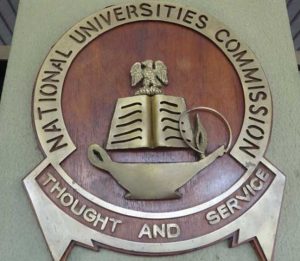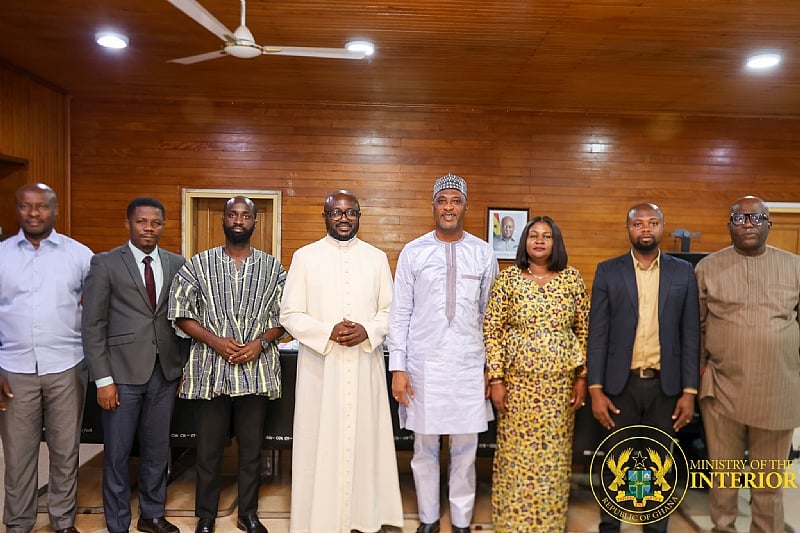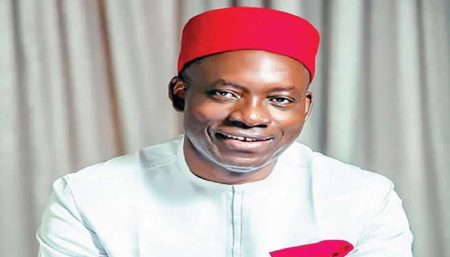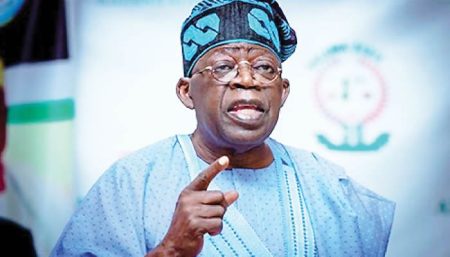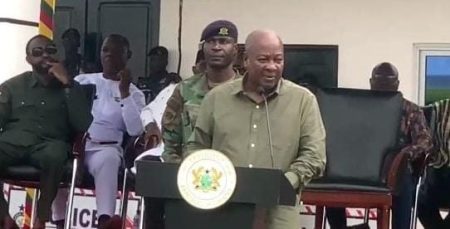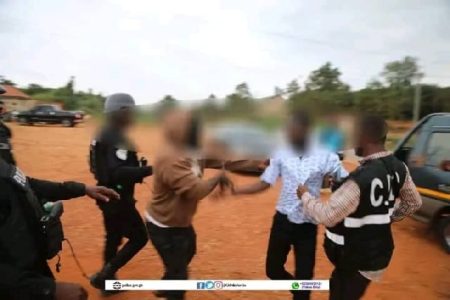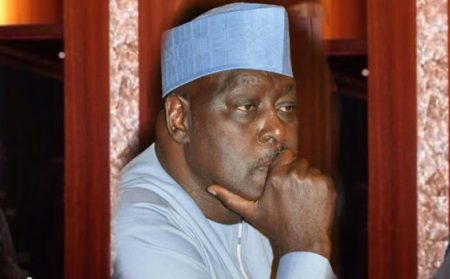A delegation from the Ghana Catholic Bishops Conference, led by Rev. Fr. Michael Quaicoo, Director of Governance, Justice and Peace at the National Catholic Secretariat, met with the Minister for the Interior, Mr. Muntaka Mohammed-Mubarak, to discuss collaborative strategies for promoting peace and stability, particularly within the Sahel region. The meeting underscored the crucial role of interfaith cooperation and government partnerships in fostering peaceful coexistence and addressing the root causes of conflict. The Minister commended the Catholic Church’s historical contribution to national development and encouraged its continued engagement with other faith-based organizations to champion peace and interfaith harmony.
The Minister for the Interior stressed the importance of coexistence in maintaining Ghana’s peaceful environment. He recognized the invaluable contributions of faith-based organizations, including the Catholic Church, in promoting intercommunity understanding and respect. Mr. Muntaka affirmed the Ministry’s commitment to partnering with Caritas Ghana, the charity arm of the Ghana Catholic Bishops Conference, and other faith-based organizations in bolstering peace and security initiatives nationwide. This partnership signifies the government’s recognition of the vital role religious institutions play in conflict resolution and peacebuilding.
Rev. Fr. Quaicoo highlighted Caritas Ghana’s key initiatives, particularly the Sahel Peace Initiative, a flagship project designed to address the root causes of conflict and promote peaceful coexistence within the Sahel region. This region, facing multifaceted challenges including political instability, poverty, and climate change, has become increasingly vulnerable to conflict. The Sahel Peace Initiative aims to mitigate these factors and foster harmonious relationships among diverse communities. The delegation emphasized the importance of collaborative efforts between the Church, government, and other stakeholders in achieving sustainable peace in the region.
The Sahel Peace Initiative, as explained by Rev. Fr. Quaicoo, is a crucial intervention aimed at addressing the complex and interconnected factors driving conflict in the Sahel region. These factors include competition for resources, ethnic tensions, climate change impacts, and the presence of extremist groups. The initiative seeks to address these root causes through various programs and interventions focused on dialogue, reconciliation, community development, and promoting interfaith understanding. By working collaboratively with local communities and stakeholders, the initiative strives to build resilience and foster lasting peace in the region.
The Catholic Church’s commitment to fostering peace and stability extends beyond the Sahel region, encompassing national and international efforts. They advocate for constructive dialogue, mutual understanding, and sustainable peace through partnerships with government institutions, civil society organizations, and international stakeholders. This multi-faceted approach recognizes the complexity of peacebuilding and the need for collaborative action across different sectors. The Church’s engagement emphasizes the importance of addressing both the immediate symptoms and the underlying causes of conflict to achieve lasting peace.
The meeting between the Ghana Catholic Bishops Conference delegation and the Minister for the Interior highlights the vital role of interfaith cooperation and government partnerships in promoting peace and security. The Catholic Church’s commitment, exemplified through initiatives like the Sahel Peace Initiative, underscores the importance of addressing the root causes of conflict and fostering peaceful coexistence among diverse communities. The collaborative approach, involving government, civil society, and international stakeholders, reflects a comprehensive strategy towards building sustainable peace in the region and beyond. The continued partnership between religious institutions and government bodies serves as a crucial pillar in maintaining stability and fostering a culture of peace in Ghana and the wider region.


